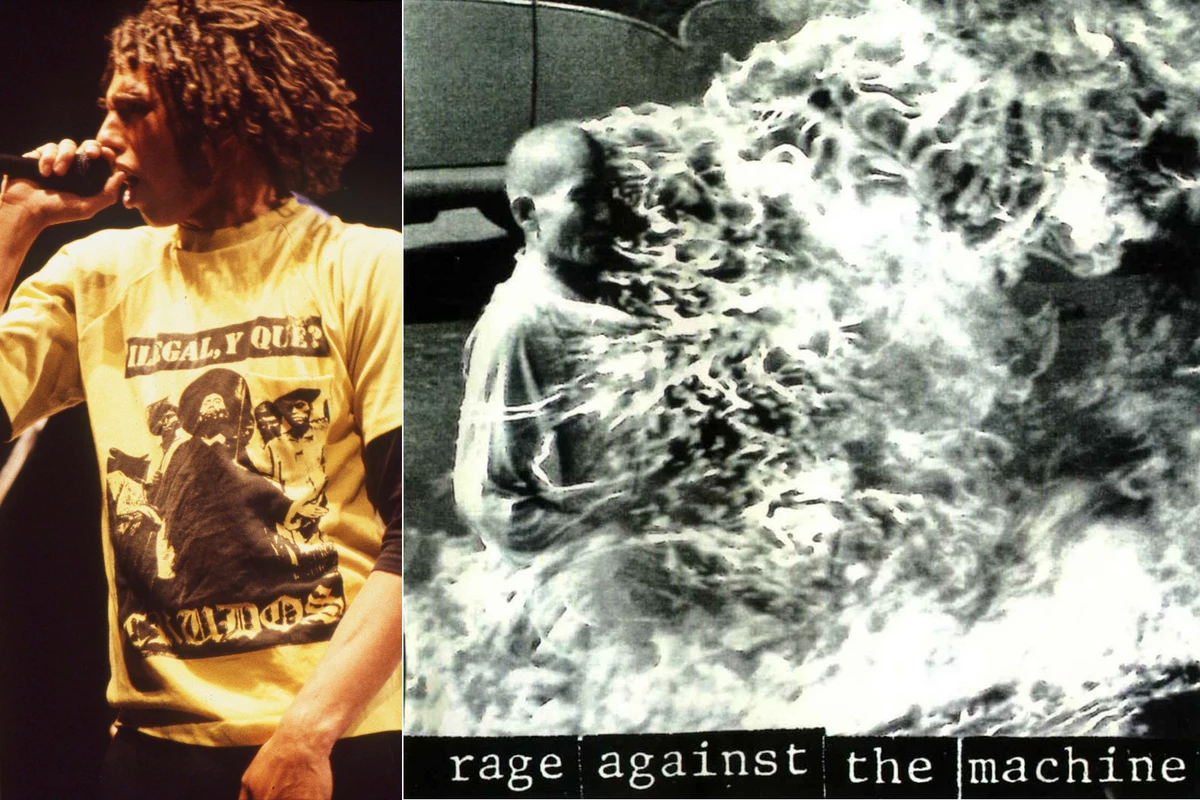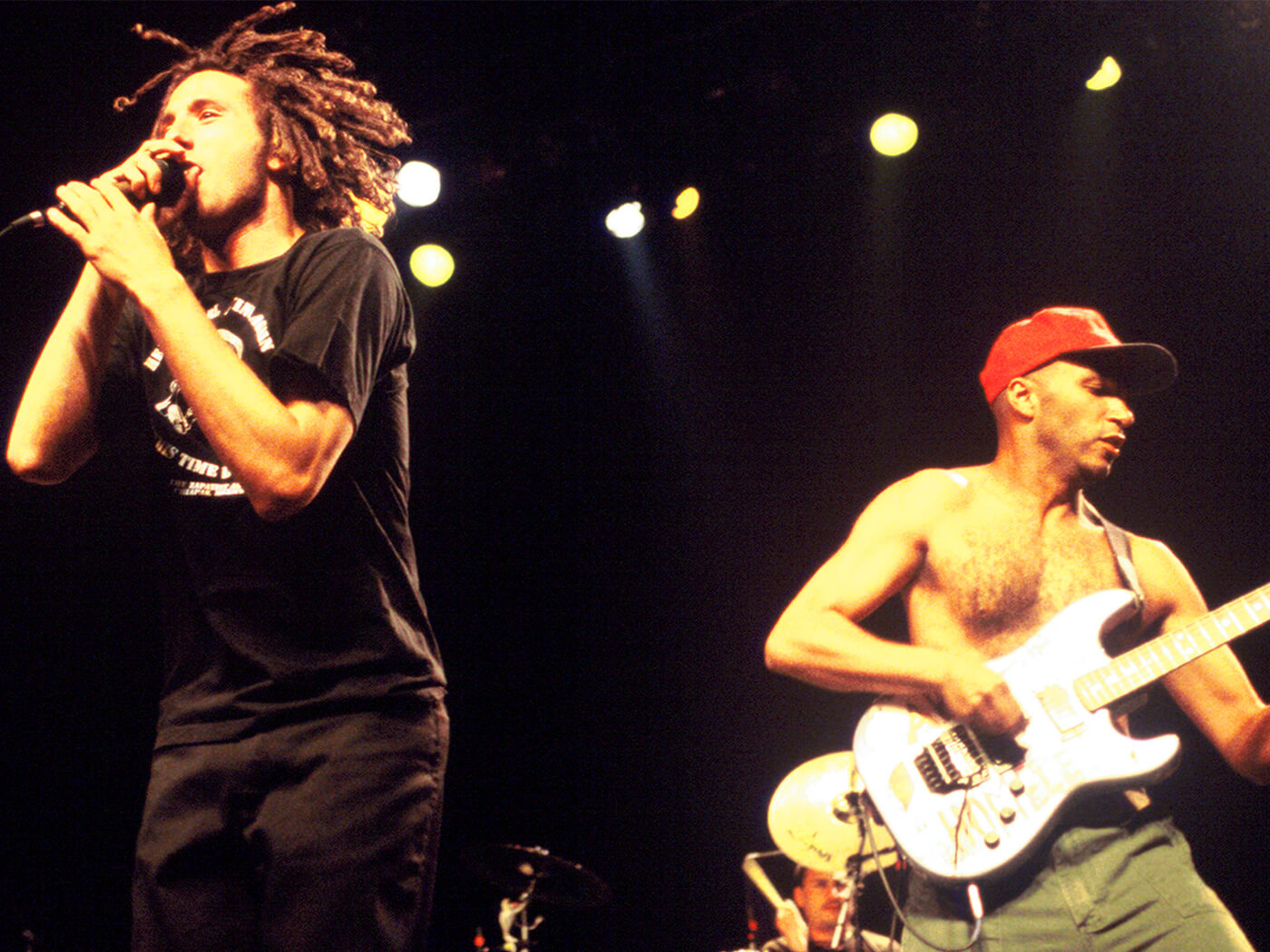Zach Mastermind Lyricist Behind Rage Against The Machine
Let’s talk about one of the most iconic figures in rock history who shaped an entire era of music with their raw energy and rebellious spirit. Zach de la Rocha, the lyricist and vocalist behind Rage Against the Machine, is not just a musician; he’s a revolutionary voice. His lyrics cut deeper than just words—they’re like a punch to the gut that makes you question everything around you. If you’ve ever felt the need to stand up against injustice or wanted to scream at the world for its broken systems, this dude gets it. So, let’s dive into what makes Zach such a mastermind when it comes to crafting those unforgettable anthems.
When people think of Rage Against the Machine (RATM), they often associate the band with its heavy guitar riffs, Tom Morello’s mind-blowing solos, and of course, the powerful vocals delivered by Zach de la Rocha. But there’s more to Zach than just his stage presence. He’s a lyricist who uses words as weapons to challenge authority, expose corruption, and give a voice to the voiceless. Every song he writes feels like a personal manifesto, and that’s why RATM fans connect with him so deeply.
What sets Zach apart is his ability to blend activism with art. His songs are not just entertainment—they’re political statements that force listeners to think critically about society. From “Killing in the Name” to “Bulls on Parade,” Zach’s lyrics tackle issues like police brutality, capitalism, racism, and government oppression. And trust me, these aren’t just random topics thrown in for shock value. They’re deeply researched and heartfelt expressions of frustration and hope. So, if you’re ready to learn more about the genius behind the microphone, keep reading!
Read also:99 Frycom Your Ultimate Destination For Mouthwatering Recipes
Who Is Zach de la Rocha?
Before we dive into Zach’s lyricism, let’s take a step back and get to know the man behind the mic. Born on January 12, 1971, in Long Beach, California, Zach de la Rocha grew up surrounded by art and activism. His mom was an artist, and his dad was a Chicano muralist, which heavily influenced his worldview. Growing up, Zach witnessed firsthand the struggles faced by marginalized communities, and that exposure would later shape his music.
Here’s a quick rundown of his early life:
- Full Name: Ramón Zachary de la Rocha
- Birthplace: Long Beach, California
- Parents: Robert de la Rocha (muralist) and Virginia de la Rocha (artist)
- Early Influences: Punk rock, hip-hop, and social justice movements
Zach’s upbringing in a multicultural household gave him a unique perspective on the world. He saw the beauty of art and the power of protest from a young age, and that duality would eventually define his career. Now, let’s break down how he became the lyricist we know today.
Biography: The Journey of a Revolutionary
| Fact | Details |
|---|---|
| Born | January 12, 1971 |
| Band | Rage Against the Machine |
| Role | Vocalist, Lyricist |
| Genre | Alternative Rock, Rap Metal |
| Years Active | 1991–2000 (RATM), 2022–present |
From the streets of Los Angeles to the global stage, Zach’s journey has been nothing short of inspiring. After forming RATM in 1991 with his childhood friend Tom Morello, he quickly established himself as one of the most dynamic frontmen in rock history. But it wasn’t just his voice that captivated audiences—it was his message. Through his lyrics, Zach gave a platform to those who felt unheard, and that’s what made him a true mastermind.
Understanding Zach’s Lyricism
Now that we’ve covered the basics, let’s dive into what makes Zach de la Rocha such a standout lyricist. His style is a perfect blend of punk rock intensity and hip-hop precision. He doesn’t just write songs; he crafts narratives that resonate with listeners on a visceral level. Here’s why his lyricism stands out:
- Raw Emotion: Zach’s lyrics are filled with emotion, whether it’s anger, frustration, or hope. He doesn’t sugarcoat anything, and that authenticity is what makes his work so powerful.
- Social Commentary: His songs often tackle complex social issues, from institutional racism to economic inequality. By addressing these topics, Zach forces listeners to confront uncomfortable truths.
- Wordplay and Metaphors: Zach is a master of wordplay and metaphor. He uses clever phrasing to convey deep meanings, making his lyrics both intellectually stimulating and emotionally charged.
For example, in “Killing in the Name,” Zach delivers lines like “Some of those that work forces / Are the same that burn crosses.” These words aren’t just catchy—they’re a direct indictment of systemic racism. It’s this kind of lyrical depth that sets Zach apart from other musicians.
Read also:Bolly4ucomin Your Ultimate Destination For Bollywood Entertainment
Key Themes in Zach’s Lyrics
If you’ve listened to RATM’s discography, you’ll notice certain recurring themes throughout their music. Here are some of the key themes that define Zach’s lyricism:
- Resistance: Zach often writes about resisting authority and fighting against oppressive systems. Songs like “Bombtrack” and “Sleep Now in the Fire” embody this spirit of rebellion.
- Identity: Many of his lyrics explore themes of identity, particularly in relation to race and culture. Tracks like “Take the Power Back” and “People of the Sun” celebrate diversity and encourage unity.
- Hope: Despite the heavy subject matter, Zach’s lyrics often carry a message of hope. He believes in the power of collective action to create change, and that optimism shines through in songs like “Wake Up.”
These themes aren’t just random choices—they reflect Zach’s personal beliefs and experiences. His ability to translate those beliefs into music is what makes him such a compelling artist.
The Power of Protest Music
Protest music has been around for decades, but Zach de la Rocha took it to a whole new level with Rage Against the Machine. Unlike many protest songs, RATM’s music doesn’t just point out problems—it offers solutions. Zach’s lyrics are like a call to action, urging listeners to get involved and make a difference.
According to a study published in the Journal of Popular Music Studies, protest music plays a crucial role in raising awareness and mobilizing communities. Zach’s work aligns perfectly with this idea. By combining powerful lyrics with electrifying music, he creates an experience that’s both educational and entertaining.
For instance, consider the impact of “Guerrilla Radio,” a song that calls for independent media and free speech. Lines like “The power to guide the masses / Is in the hands of the media” highlight the dangers of corporate control over information. Zach’s message is clear: we need to take back control and create our own narratives.
How Zach’s Music Inspires Change
But it’s not just about the words—Zach’s music inspires change in real-world ways. Fans of RATM have reported feeling empowered after listening to his songs. Some have even credited Zach with motivating them to get involved in activism or pursue careers in social justice.
One notable example is the 1999 WTO protests in Seattle, where RATM performed and encouraged attendees to stand up against corporate greed. Their performance wasn’t just entertainment—it was a rallying cry for change. This kind of impact is a testament to Zach’s influence as both a musician and an activist.
Breaking Down the Lyrics
Let’s take a closer look at some of Zach’s most iconic lyrics and what they mean. We’ll analyze three standout tracks to understand why they resonate so deeply with audiences.
1. “Killing in the Name”
Perhaps the most famous RATM song, “Killing in the Name” is a scathing critique of police brutality and institutional racism. The repeated line “Some of those that work forces / Are the same that burn crosses” directly links law enforcement with hate groups like the Ku Klux Klan. It’s a bold statement that demands accountability from those in power.
What makes this song even more powerful is its simplicity. The chorus, “F*** you, I won’t do what you tell me,” is a universal declaration of defiance that anyone can relate to. It’s no wonder this track became an anthem for generations of activists.
2. “People of the Sun”
“People of the Sun” is a tribute to the Zapatista movement in Mexico, which fought for indigenous rights and autonomy. Zach’s lyrics celebrate the resilience of oppressed communities and call for solidarity across borders. Lines like “We’re the people of the sun / We’ll fight for survival” highlight the strength of grassroots movements.
This song is a great example of how Zach uses his platform to amplify marginalized voices. By drawing attention to the Zapatistas, he helps bring global awareness to their struggle.
3. “Wake Up”
“Wake Up” is a hopeful track that encourages listeners to take action and create change. The lyrics emphasize the importance of education and empowerment, with lines like “You’ve got to understand / To make a change / Gotta shake up the world.” It’s a reminder that change starts with individual effort but requires collective action.
This song is a perfect encapsulation of Zach’s philosophy: believe in yourself, educate yourself, and work together to build a better world.
The Legacy of Zach de la Rocha
As we look back on Zach’s career, it’s clear that his impact extends far beyond music. He’s not just a lyricist—he’s a cultural icon whose work continues to inspire new generations of activists and artists. Even after RATM’s hiatus, Zach remained active in various projects, including Prophets of Rage and solo endeavors.
According to a report by Rolling Stone, RATM’s influence can be seen in modern protest music, from Kendrick Lamar to Run the Jewels. Artists today cite Zach as a major influence, praising his ability to blend activism with art. His legacy lives on through these artists, who carry forward the torch of resistance and social justice.
Why Zach’s Work Matters Today
In today’s political climate, Zach’s messages are more relevant than ever. Issues like police brutality, economic inequality, and environmental degradation continue to plague society, and Zach’s music provides a much-needed voice of dissent. His work reminds us that art can be a powerful tool for change.
As we face new challenges in the 21st century, Zach’s example shows us that music has the power to inspire, educate, and mobilize. Whether you’re a fan of RATM or simply someone who cares about making the world a better place, Zach’s legacy is something worth celebrating.
Conclusion
So, there you have it—the story of Zach de la Rocha, the mastermind lyricist behind Rage Against the Machine. From his early days in Long Beach to his rise as a global icon, Zach has always been about more than just music. His lyrics challenge us to think critically, act courageously, and never settle for the status quo.
As we’ve explored in this article, Zach’s work is defined by its raw emotion, social commentary, and hopeful vision for the future. Whether you’re a longtime fan or a newcomer to his music, there’s no denying the impact he’s had on the world. So, what are you waiting for? Go listen to some RATM, grab your megaphone, and join the fight for a better tomorrow!
And don’t forget to share this article with your friends, leave a comment below, and check out our other content on legendary musicians who changed the game. Let’s keep the conversation going!
Table of Contents
Article Recommendations


